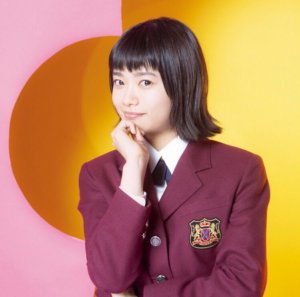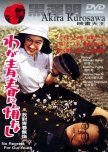Understated
I had no idea just how many films Akira Kurosawa directed until I stumbled upon this film. I have only seen two, Rashomon and Yojimbo, so far. These two films and his other well known films all seem to be historical dramas or samurai epics. So No Regrets for Our Youth really stuck out to me. It is set during the pre-war period up to the end of the war (1933-1945). Since it was released in 1946, this could almost be considered contemporary.
The film is mostly told through the point-of-view of Yukie Yagihara (played by Setsuko Hara). She is the daughter of college professor ousted from his position due to his views on fascism, sparking anti-militarist student protests. A lot of Hara's acting is subtle, such as her falling for one of the protestors, Noge. She never states her feelings; you can tell from her facial expressions and actions. Hara is one of those actresses that always amazes me. Sometimes I don't understand why she did this or that, but at the end of the film it always clicks.
All in all, No Regrets for Our Youth is a wonderfully slow-paced film. Its portrayal of the anti-war efforts of Japanese people was something I never thought of. Kurosawa's decision to make this film so soon after the war is also interesting to me as it shows his convictions. It's too bad that this film isn't more well known, but I understand. It isn't a samurai epic or anything genre changing. However, it's an honest, understated picture about what feels like real people amidst political turmoil and war. And Hara is an amazing heroine from beginning to end.
The film is mostly told through the point-of-view of Yukie Yagihara (played by Setsuko Hara). She is the daughter of college professor ousted from his position due to his views on fascism, sparking anti-militarist student protests. A lot of Hara's acting is subtle, such as her falling for one of the protestors, Noge. She never states her feelings; you can tell from her facial expressions and actions. Hara is one of those actresses that always amazes me. Sometimes I don't understand why she did this or that, but at the end of the film it always clicks.
All in all, No Regrets for Our Youth is a wonderfully slow-paced film. Its portrayal of the anti-war efforts of Japanese people was something I never thought of. Kurosawa's decision to make this film so soon after the war is also interesting to me as it shows his convictions. It's too bad that this film isn't more well known, but I understand. It isn't a samurai epic or anything genre changing. However, it's an honest, understated picture about what feels like real people amidst political turmoil and war. And Hara is an amazing heroine from beginning to end.
Considerați utilă această recenzie?

























